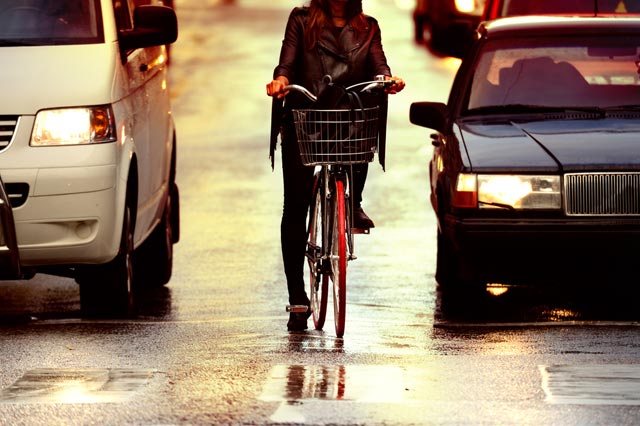
Despite the significant risks for human and non-human life, greenhouse gas emissions (GhG) are still rising. Something has to give – and that something would appear more significant than those with the power to stimulate change are willing to admit.
The UK government’s Global Calculator is a good example. This recently released tool allows us to model the compatibility of our food, travel, housing and work environment with national targets to limit climate change. The climate secretary, Ed Davey, reckons the calculator shows “everyone in the world can prosper while limiting global temperature rises to two degrees, preventing the most serious impacts of climate change.”
Yet even the most ambitious changes the tool advocates deviate little from our current “normal” patterns of behaviour – supposedly “essential” appliances still include tumble driers, while under the “extremely ambitious” scenario, the urban car would still account for 29% of journeys (currently 41.5%) per year. Meat is included as a core component of daily meals, and very few indicators relate to diet. It remains to be seen which government would adopt the “extremely ambitious” changes.
This isn’t what a sustainable future looks like. It isn’t even close. Do we really need tumbledried clothes, or to eat meat every day?
Transitioning to sustainability will require profound changes in our everyday ways of living, particularly in westernised countries. It requires changes that are much more significant than simply doing the things that we currently do, but more efficiently.
It’s not about driving more efficiently to reduce the GhG emissions of the commute, but perhaps leaving the car at home, cycling to work – or working from home.
While tools such as the one above enable people to calculate their carbon footprint, they tell us little about the changes we’d actually need to make, and how these changes would affect our daily lives.
We Are Capable of Big Changes
Humans are adaptive creatures, able to move homes, jobs, retire or have children – all of which require us to break down and rebuild our existing ways of doing things.
Consider how eating practices change with retirement. Many retirees find themselves with the time and desire to begin growing their own food in an allotment or their gardens. Retirement might provide the flexibility to shift energy-intensive cooking and laundry to daylight hours, taking advantage of solar energy.
But retirement can also mean being less environmentally sustainable. The significance of food can diminish as a result of children leaving home or the loss of a partner. Ready meals (which are often worse for the environment) might take the place of cooking from scratch. And, as food becomes a leisure activity, this can involve more car journeys.
The point is that people can and do make major life transitions, and these moments are big opportunities to go green. But also, that talking about “going green” as a significant change to how we currently live doesn’t have to be as daunting a prospect as it might first seem.
Sustainable Transitions?
So, rather than a Global Calculator that simply tells us whether or not we’re helping fight climate change, we suggest a more useful tool would be one that supports us in making a metaphorical “U-turn”. This tool would guide us through a process of throwing our lives out of kilter, and renegotiating and exploring more sustainable ways of being.
It couldn’t pull any punches. Rather than focusing on “things” and “stuff”, like a more efficient boiler or a washing machine that does eco mode, such a tool would have to be framed in terms of shifting practices – grow and cook more, eat little (or, better still, no) meat, work and travel less, wear more layers to keep warm and rely less on the heating, buy less “stuff”, and so on.
But that’s not to say that living sustainably is easy. Significant changes to our lives are difficult and disruptive, even more so when current policies and infrastructures don’t comfortably support them (for example: public transport systems, expectations of appropriate work clothes). And so we should design tools that encourage us to make transitions towards sustainability that are themselves more sustainable.
While big changes are needed, we should work towards them in smaller, more manageable steps. But, nonetheless, steps that involve reconsidering practices, not just tweaking them. After all, encouraging someone to think that switching washing machine, or buying a more efficient car is enough, is misleading. Far better to change practices entirely, so that driving less or line drying clothes becomes the new normal.
Thank you for reading Truthout. Before you leave, we must appeal for your support.
Truthout is unlike most news publications; we’re nonprofit, independent, and free of corporate funding. Because of this, we can publish the boldly honest journalism you see from us – stories about and by grassroots activists, reports from the frontlines of social movements, and unapologetic critiques of the systemic forces that shape all of our lives.
Monied interests prevent other publications from confronting the worst injustices in our world. But Truthout remains a haven for transformative journalism in pursuit of justice.
We simply cannot do this without support from our readers. At this time, we’re appealing to add 50 monthly donors in the next 2 days. If you can, please make a tax-deductible one-time or monthly gift today.